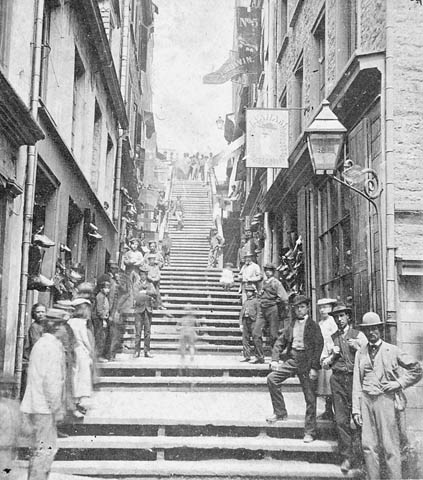Organization of the New Dominion of Canada (1867–73)

Source: Link
Macdonald’s “Lieutenant”: Cartier and the Political Direction of the Province of Quebec
After several years of constitutional debate [see Cartier and the Union: Strengths and Limitations of a Regime (1848–67)], the Dominion of Canada was born on 1 July 1867, and the province of Quebec was part of it. Sir John A. MACDONALD, an excerpt of whose biography follows, George BROWN, and Alexander Tilloch GALT had played vital roles in creating the new system of government. The same is true of George-Étienne CARTIER:
“The provisions [of the British North America Act, 1867] for the official use of the French language in parliament, in the federal courts, and in the courts and legislature of Quebec, as well as the continuance of the code civil in that province, were clearly Cartier’s contribution.”
Indeed, Cartier became a central pillar of the administration:
“On 1 July 1867 … Cartier was at Ottawa. He entered the cabinet, formed by John A. Macdonald at the request of the governor general, Lord Monck, as minister of militia and defence. When the governor announced that Macdonald had been created by Queen Victoria a knight of the Order of the Bath, and that a number of other politicians, including Cartier, were made companions of the same order, a dignity inferior to the first, the French Canadian leader refused the distinction. In the spring of 1868 Cartier was created a baronet, which conferred on him the title of ‘Sir’ and gave him a rank equal to that of the prime minister. …
“From 1867 until his death, Cartier was Macdonald’s principal lieutenant, and often replaced him as prime minister and leader of the government in the House of Commons. He was a kind of co-prime minister, practically the equal of Macdonald.”
However, establishing the new federative institutions did not occur without discord, as described in the following excerpt from the biography of Hector-Louis LANGEVIN, one of the Fathers of Confederation:
“Langevin shared with Cartier the political leadership of the province of Quebec and the task of shaping the new Canada. It was a heavy load for the two men. Unable to fulfil every aspiration, they often had to contend with the frustrations of friends, the demands of the clergy, the rivalry between nationalisms, the claims of ethnic groups, and the tactics of an increasingly well-defined opposition. Confederation was fragile and the party supporting it had neither cohesion nor internal strength.”
Cartier and Langevin therefore dealt with a variety of issues that led to strained relations between the federal government they represented and their native province. Intent on maintaining their support in Quebec, they believed they could count on Sir Narcisse-Fortunat BELLEAU. The reality, however, was different:
“As lieutenant governor [Belleau] kept watch for the federal government over the provincial administration. A believer in provincial autonomy within confederation, he soon became disenchanted. The tensions between Cartier and Hector-Louis
To learn more about Cartier and Quebec in confederation, please consult the following biographies:





